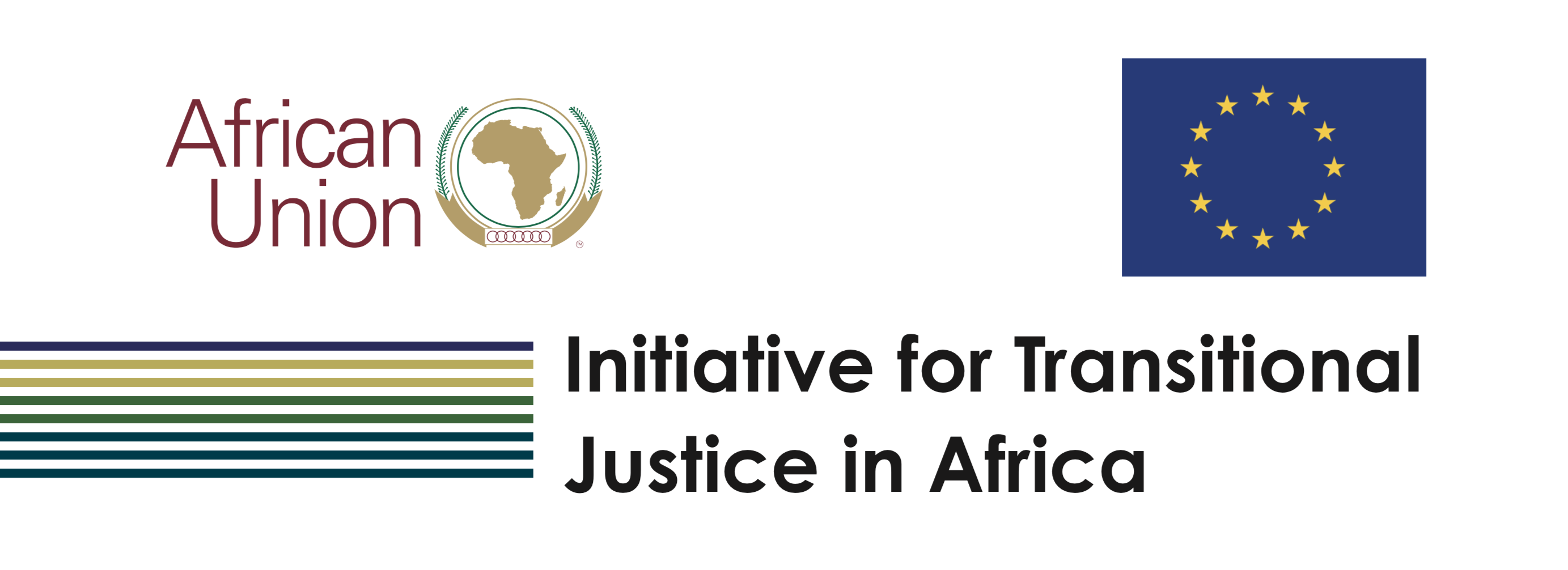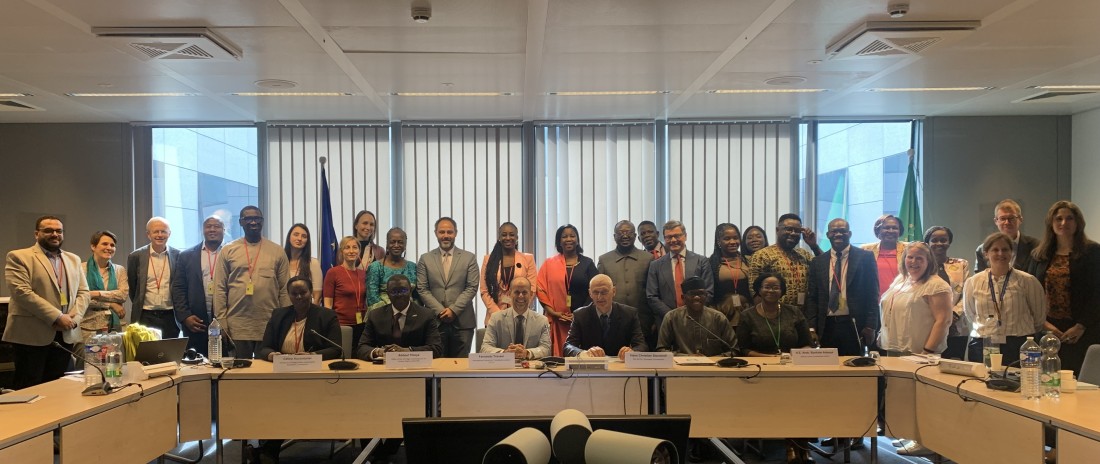On June 5 and 6, 2024, the African Union (AU) and the European Union (EU) hosted the fourth edition of the AU-EU Experts’ Seminar on Transitional Justice in Brussels, Belgium. The consortium implementing the Initiative for Transitional Justice in Africa, led by ICTJ, helped organize the event.
The AU and the EU have both adopted policy frameworks on transitional justice. The AU’s framework aims to set standards for how transitional justice processes are designed and implemented in African states. Conversely, the EU’s framework looks mostly outward, focusing on advancing transitional justice around the world. In the AU-EU Human Rights Dialogues since 2019, the two regional bodies have pledged to collaborate on issues related to transitional justice and translate their shared commitment into concrete actions. As part of this collaboration, the AU and EU agreed to convene annual expert-level seminars on transitional justice.
This year’s seminar, entitled “Addressing Past Violations, Present Issues and Future Challenges in Africa and Europe: Envisioning Transitional Justice Approaches for Transformational Impact,” further explored how transitional processes can transform individual lives, societal relations, and dysfunctional state institutions, as outlined in the 2023 UN Secretary-General’s guidance note on transitional justice. Policymakers, transitional justice practitioners, academics, civil society representatives, and other stakeholders from the two regions attended the seminar, where they discussed how best to design and implement transitional justice processes to achieve such transformation.
In her opening remarks, the AU Commission’s Director of Governance and Conflict Prevention, Patience Chiradza, recalled that institutional reform is a main component of the AU’s transitional justice policy. But beyond that, she said, institutional, societal, and cultural reforms are also possible through a holistic and transformational transitional justice processes that enhance state-building and instill human rights values.
The EU’s Acting Deputy Secretary-General for Global and Economic Issues, Belen Martinez Carbonell, stated, “The EU seeks to prevent violations and abuses of human rights throughout the world. Where these occur, it is our goal to ensure that victims have access to justice and redress and that those responsible are held to account. The EU is guided in its endeavors by international human rights law and international humanitarian law.”
Participants reflected on the critical developments in the field of transitional justice and how the AU and EU’s policies and actions can contribute to more effective transitional justice processes. They also shared best practices and lessons on integrating mental health and psychosocial support, education, institutional reform, and state-building into transitional justice mechanisms.
The seminar allowed representatives from the AU, EU, and UN to exchange ideas on how to strengthen collaboration among the multilateral organizations to ensure transitional justice processes in Africa and Europe deliver transformational impact for post-conflict societies. In the discussion, they all agreed to work together to advance context-specific and victim-centered transitional justice processes.
The Chief of the Rule of Law, Equality, and Non-Discrimination Branch at the Office of the UN High Commissioner for Human Rights, Abdoul Aziz Thioye, called on the AU, EU, and UN to enhance their early prevention mechanisms to better respond to deteriorating situations before they devolve into violence. He also cautioned against the instrumentalization of transitional justice for political gain. “By focusing on the goals and on people’s actual needs, transitional justice can make a real difference in people’s lives in the short and long term,” Thioye said. “It is crucial that our work begins by listening to people, not just at the beginning,” he continued. “That should be a continuous effort throughout the process.”
The seminar spotlighted the critical role education plays in achieving lasting peace, while stressing the importance of incorporating a trauma-informed approach in transitional justice processes; meaningfully including women, youth, and other marginalized groups in these processes; opening up civic space; supporting civil society organizations; and building resilient state institutions. It also identified the need for more robust early warning mechanisms and to address the root causes of conflict including socioeconomic inequalities. At the end of the two-day seminar, participants expressed a renewed sense of commitment to realizing the transformational impact of transitional justice in Africa, Europe, and around the world.
AU Commissioner of Political Affairs Peace and Security, H.E. Ambassador Bankole Adeoye, and European Commission Directorate-General for International Partnerships’ Acting Director for Africa, Hans Christian Stausboll, gave closing remarks. Quoting Martin Luther King, Jr., H.E. Ambassador Adeoye stated that “peace is not merely the absence of conflict. Peace is about social justice, which transitional justice is all about.” He further emphasized that transitional justice should be part of the process of enhancing good governance. Stausboll, for his part, called on AU and EU member states to implement their regional transitional justice policies, saying “transitional justice is not only, but mostly about political will.”
In his closing remarks, ICTJ Executive Director, Fernando Travesí, explained how the seminar allowed experts from different contexts to share lessons and insights that can help improve ongoing or future transitional justice processes and ensure they have a tangible, transformative impact. “Over these two days, we have focused on the transformation and prevention aspects of transitional justice, not the mechanisms [themselves],” he said. “This has been important, to see, to focus on the objectives of the work.”
_________
PHOTO: Representatives from the EU, AU, ICTJ, partner organizations, and experts gathered in Brussels on June 5 and 6, 2024, for a two-day seminar on the transformational impact of transitional justice in Africa and Europe. (Claudia González/ICTJ)

